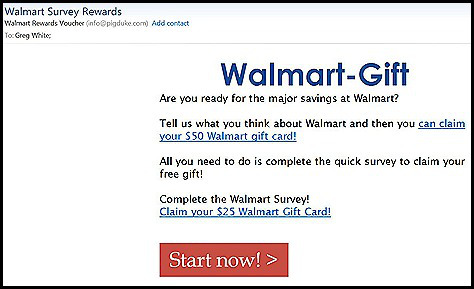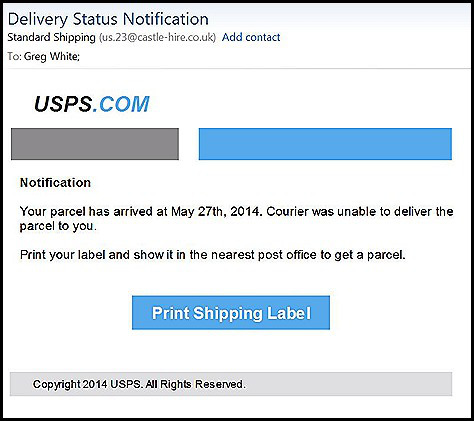Alerting us, David Passell says, "With people always on the lookout for 'bargains' here is something to be aware of when buying a used iPhone from eBay or other not-Apple sources. Buyers of second-hand iPhones can now more easily check that the previous owner still doesn't have control over the device." Read about it http://www.zdnet.com/apple-releases-activation-lock-status-checker-for-used-ios-devices-7000034285/
iCloud is Vulnerable
Pay by Credit Card?
The eagle eye of Jim Hamm found this and he says, "By October 2015 all of our magnetic-stripe credit cards should be replaced by EMV-enabled cards, also referred to as "chip and PIN" cards. Here is an article with details about how these new cards work, and some possible vulnerabilities. One aspect of the new cards is that banks are now shifting the onus to us -- the customer -- for any fraudulent use of a credit card. Now, most banks limit our responsibility to $50.
eBay Redirect Hack
A really serious article here http://www.bbc.com/news/technology-29241563 is brought to our attention by David Passell. This eBay redirect hack info was posted yesterday, and it should be passed on to others, too.
Beware of Phishing
After hearing from David Passell posted on 9-3, we all are on alert for the bad stuff. A few days later here comes an email to "editor" of this blog, asking for the password to be reset. Avoiding the obvious, it was time to phone directly to Apple for help from a living person. Finally, a person to talk with! The man agreed that since the return address on the email was from "orders@tunes.co.uk" it was BAD. He directed me to forward that email to reportphishing@icloud.com and so that's that.
Is This Phishing?
"Doesn't this look threatening?" questions David Passell. He passes along a copy of an email which says it's from no-reply@icloud.app.com asking for him to update his account records. He wonders if it's legitimate or not. He says he doesn't buy anything on an Apple Account, at least he hasn't for a long time. He emphasizes "I will not click on the update to my account Link. If I were worried I would go straight to my Apple account with my id and PW."
Did anyone else get this kind of an email?
Security Flaw in USB Flash Drives
Quoting from the link below: " . . . any USB device (flash drive, external hard drive, smartphone, digital camera, mouse, keyboard, etc.) that has been plugged into an untrusted computer should be treated with suspicion -- much like a used hypodermic needle. Further, erasing, formatting, or using anti-virus tools will not remove malicious code from the firmware of USB devices. And there is no known method at this time to scan USB devices to see if they are clean."
Read about this serious problem here. Thanks to Jim Hamm for his eagle eye, spotting this vital information.
Potential Dangers of Photo Posting
"If you post pictures online, say on Facebook, you should take a look at this video of what can be discovered from the picture you just posted. So be careful of what you post. The video also gives you a tip on how to possibly avoid this discovery," says Jim Hamm.
Attack Circumvents All Known Security Measures
Dated July 31, 2014, this article needs our attention. Ward Stanke says, "It looks pretty scary." http://www.macrumors.com/2014/07/31/usb-security-threat/ Read about the flaw that evades all known security measures used by a computer. This matter is to be discussed at a conference next week in Las Vegas. The Black Hat USA 2014 website is here: https://www.blackhat.com/us-14/
Be Aware of More Malware
With his statement, "Here's something just to be aware of . . . " Jim Hamm provides this link, https://www.us-cert.gov/ncas/alerts/TA14-212A dated July 31, 2014 from the United States Computer Emergency Readiness Team.
Some Specific Malware Emails
"Of course you already know not to click suspicious emails so you don't end up with a virus or some other malware. Following are some examples that Greg, a blogger I follow, wrote and shows some of the suspicious emails he and his wife have been recently receiving. As he says, just be careful." And thanks to Jim Hamm for this new alert.
Warning From CableONE
Another phishing scam has surfaced. David Passell sends a copy of an email from CableONE, instructing customers to "please disregard any mail you receive that contains the following message, as it is a phishing scam: 'Your account is due and needs to be upgraded immediately. Please review billing details and upgrade or we will disconnect you from services.'" It goes on to detail a false link that is NOT a CableONE webpage. Here is more info from Cable ONE Cable ONE Support Site
Another Security Flaw — Again
Another security flaw surfaces. Read who is involved here http://www.cultofmac.com/277199/security-flaw-makes-easy-scammers-steal-data/
Watching for Possible Phish
The email he received in his daily list had the catchy title of "No sign-up needed: Manage your money online." But David Passell did the sensible, careful thing. Instead of clicking to open the possible phish he went on-line directly to the Credit Union website. Better to be suspicious than to automatically open all the email you receive.
Apple's Not Affected. But What About --- ?
The breaking news on Monday, April 7 was a huge wakeup call. Jim Hamm's gives some help here about places affected by Heartbleed vulnerability.
Apple was not affected, and you do not need to change your password.
Last Pass lets you enter the name of the site you want to check.
Mashable published this list and gives comments on each of these entities:
Password Managers: 1Password, Dashlane, LastPass
Another Take on Heartbleed and Apple
"Here is another article on Heartbleed," says David Passell. "It says Apple devices are not affected by Heartbleed? It emphasizes the severity to other manufacturers.See here.
Apple's Fix for "Heartbleed"
"I was curious about 'Heartbleed' hearing a lot about it," David Passell acknowledged. He found some important info. "It apparently can infect Mavericks users and IOS 6.users. Since I am still in the "stone age" with Snow Leopard I am apparently not subject to it." Read zdnet
Sure enough, the article emphasizes that the fix is in Apple's 10.9.2 update for Mavericks. Vulnerability is not present in versions of OS X prior to OS X 10.9 Mavericks or iOS prior to iOS6.
Protect Yourself from "Heartbleed" Bug
Following up on the post just below, Jim Hamm sends this article with further info on the new security bug called "Heartbleed" bug. See it here.
Vulnerable! Keep Informed
Keep informed! Jim Hamm passes this along, "This alert of a vulnerability in OpenSSl was published earlier. If you missed reading about it, here is another alert. Undoubtedly there will be more of these types of alerts as the hackers get more creative."
And if you use a smartphone you'll want to scroll down to Arstechnica's March 29 entry, warning about selling or buying a used phone to turn off Find My Phone, and also telling about avoiding trouble with "good IMEI/ESN" or "bad IMEI/ESN." Others comment about these problems in later postings.
See Macintouch. See Arstechnica.



